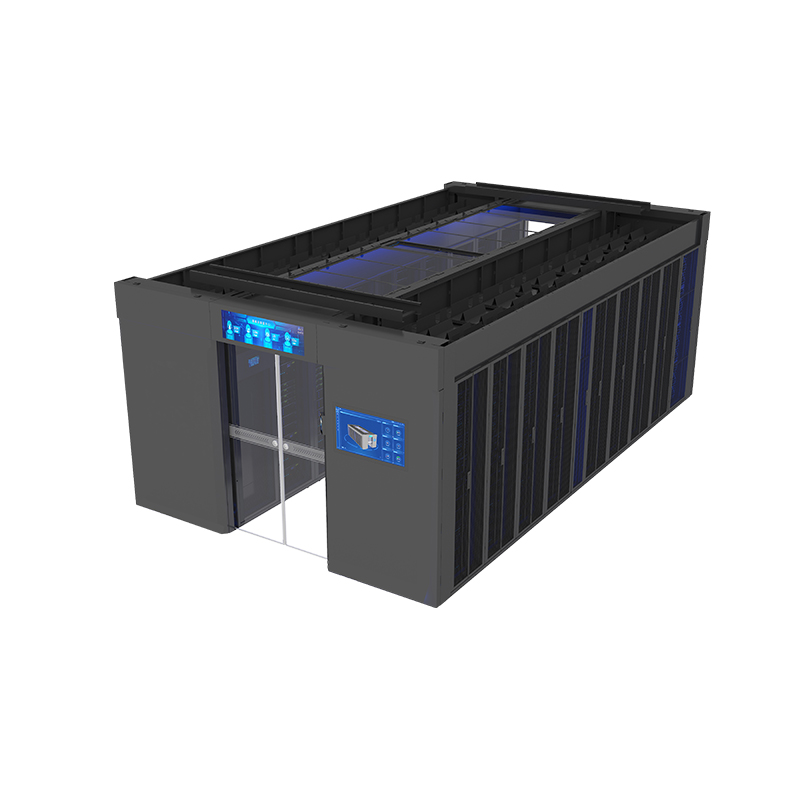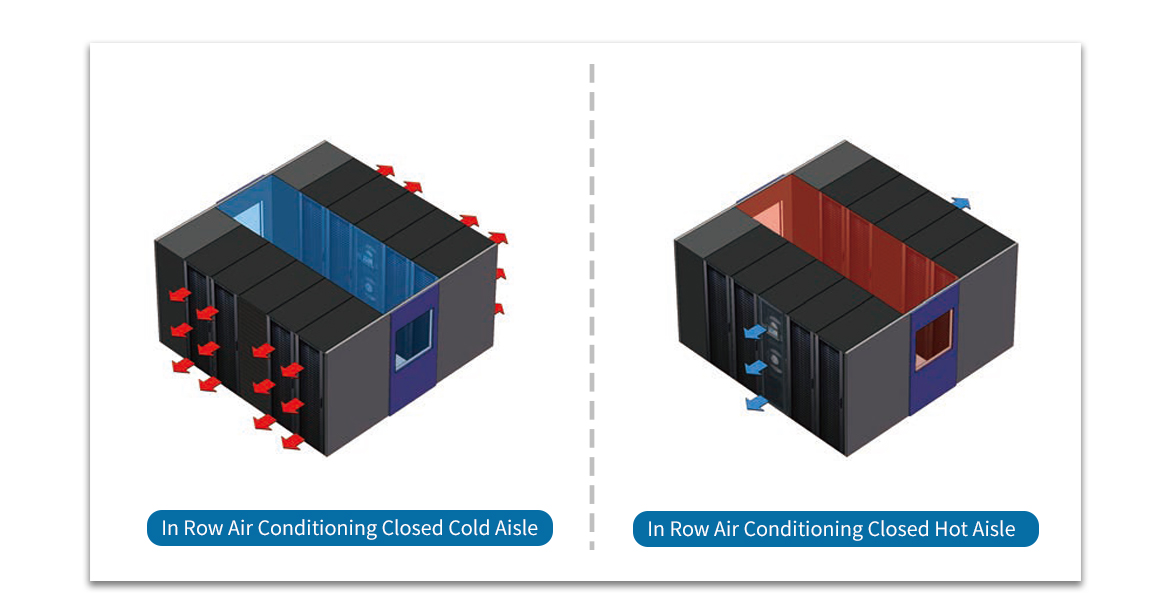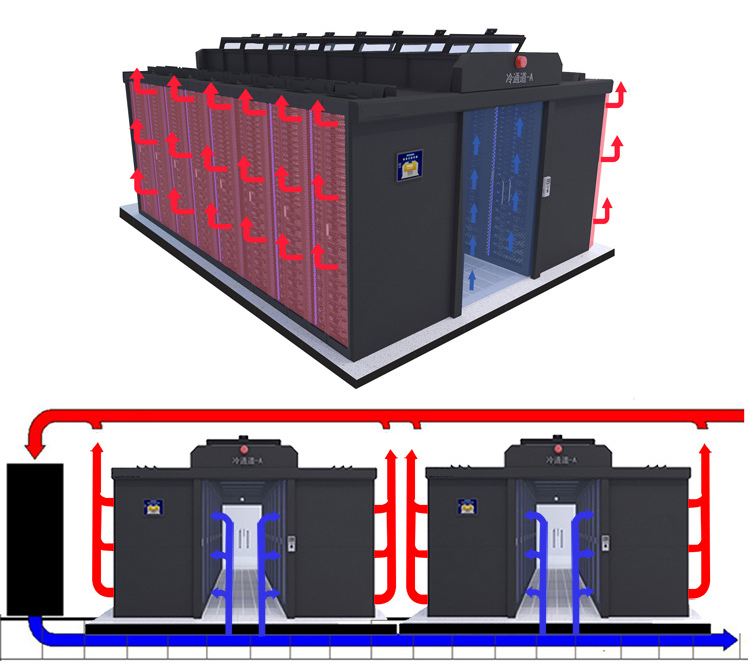Power supply system
Including non-stop power supply system (input and output power distribution, UPS host, column head cabinet), rack power distribution, battery system, ground system, power distribution protection (lightning and surge protection, protection circuit breaker at all levels), system management. The power supply system can be configured with AC power supply or DC power supply according to customer requirements.
Rack system
Rack is the support mechanism and distribution unit of all IT equipment, and is the micro-environment of IT equipment. It includes physical structure, load bearing, installation and compatibility of IT equipment, heat dissipation management (air inlet, air outlet, airflow management), power distribution power supply, rack PDU), cable management (power cable and data cable), etc.
Intelligent Management System
To ensure the reliable operation of all subsystems of the micro module, it is necessary to be able to monitor and manage these subsystems automatically. Management systems include: power equipment management systems, network equipment hardware management systems, environmental management systems, security systems, and other hardware and software for monitoring.










